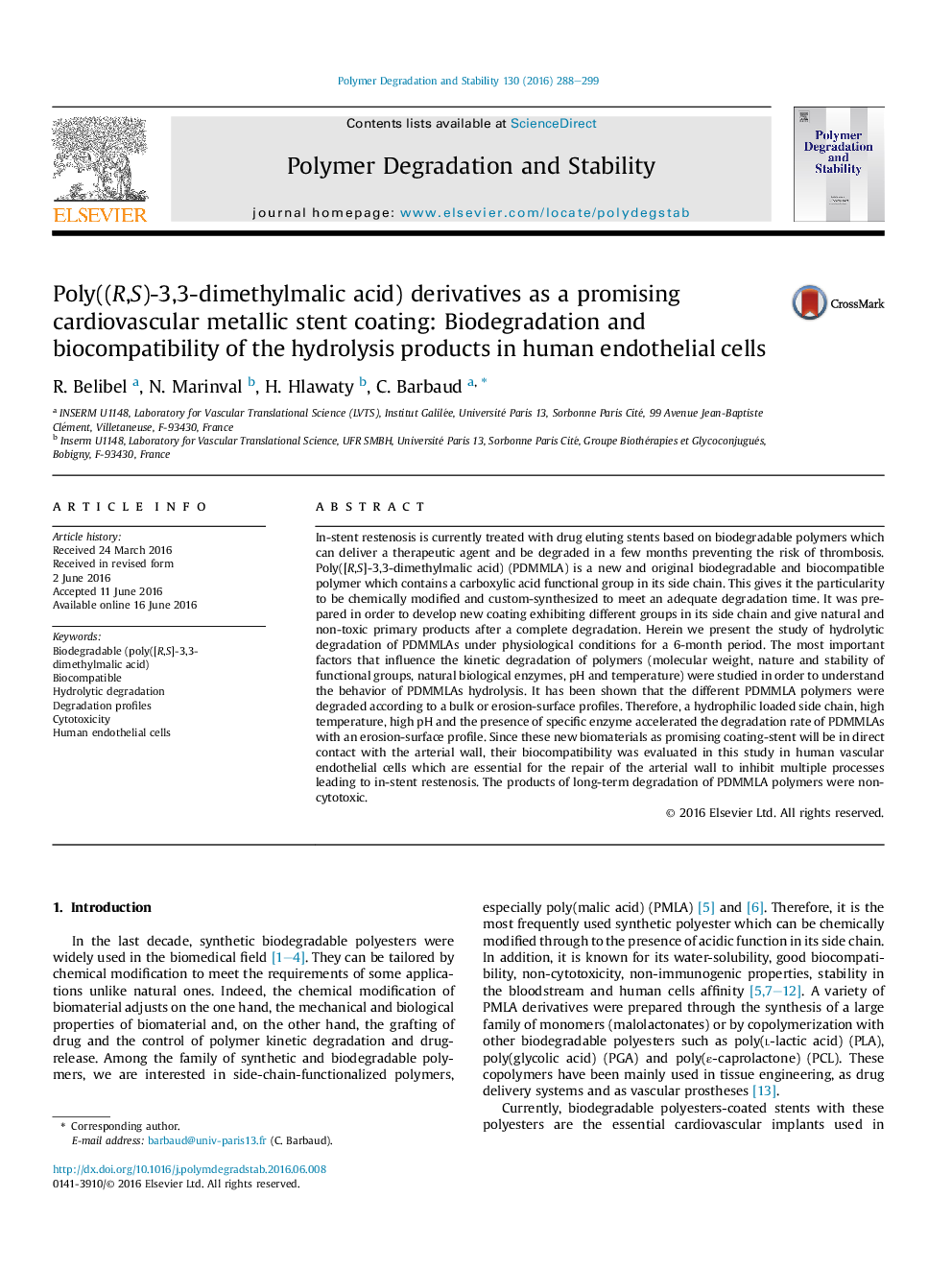| کد مقاله | کد نشریه | سال انتشار | مقاله انگلیسی | نسخه تمام متن |
|---|---|---|---|---|
| 5201086 | 1502883 | 2016 | 12 صفحه PDF | دانلود رایگان |

In-stent restenosis is currently treated with drug eluting stents based on biodegradable polymers which can deliver a therapeutic agent and be degraded in a few months preventing the risk of thrombosis. Poly([R,S]-3,3-dimethylmalic acid) (PDMMLA) is a new and original biodegradable and biocompatible polymer which contains a carboxylic acid functional group in its side chain. This gives it the particularity to be chemically modified and custom-synthesized to meet an adequate degradation time. It was prepared in order to develop new coating exhibiting different groups in its side chain and give natural and non-toxic primary products after a complete degradation. Herein we present the study of hydrolytic degradation of PDMMLAs under physiological conditions for a 6-month period. The most important factors that influence the kinetic degradation of polymers (molecular weight, nature and stability of functional groups, natural biological enzymes, pH and temperature) were studied in order to understand the behavior of PDMMLAs hydrolysis. It has been shown that the different PDMMLA polymers were degraded according to a bulk or erosion-surface profiles. Therefore, a hydrophilic loaded side chain, high temperature, high pH and the presence of specific enzyme accelerated the degradation rate of PDMMLAs with an erosion-surface profile. Since these new biomaterials as promising coating-stent will be in direct contact with the arterial wall, their biocompatibility was evaluated in this study in human vascular endothelial cells which are essential for the repair of the arterial wall to inhibit multiple processes leading to in-stent restenosis. The products of long-term degradation of PDMMLA polymers were non-cytotoxic.
Journal: Polymer Degradation and Stability - Volume 130, August 2016, Pages 288-299